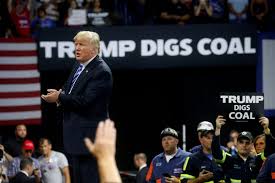
Breaking News
 Why Geological Maps Are the Best Investment You've Never Heard Of
Why Geological Maps Are the Best Investment You've Never Heard Of
 High School Student Discovers 1.5 Million Potential New Astronomical Objects...
High School Student Discovers 1.5 Million Potential New Astronomical Objects...
 UK Supreme Court says legal definition of 'woman' excludes trans women, in landmark ruling
UK Supreme Court says legal definition of 'woman' excludes trans women, in landmark ruling
 Major Problem in Physics Could Be Fixed if The Whole Universe Was Spinning
Major Problem in Physics Could Be Fixed if The Whole Universe Was Spinning
Top Tech News
 Kawasaki CORLEO Walks Like a Robot, Rides Like a Bike!
Kawasaki CORLEO Walks Like a Robot, Rides Like a Bike!
 World's Smallest Pacemaker is Made for Newborns, Activated by Light, and Requires No Surgery
World's Smallest Pacemaker is Made for Newborns, Activated by Light, and Requires No Surgery
 Barrel-rotor flying car prototype begins flight testing
Barrel-rotor flying car prototype begins flight testing
 Coin-sized nuclear 3V battery with 50-year lifespan enters mass production
Coin-sized nuclear 3V battery with 50-year lifespan enters mass production
 BREAKTHROUGH Testing Soon for Starship's Point-to-Point Flights: The Future of Transportation
BREAKTHROUGH Testing Soon for Starship's Point-to-Point Flights: The Future of Transportation
 Molten salt test loop to advance next-gen nuclear reactors
Molten salt test loop to advance next-gen nuclear reactors
 Quantum Teleportation Achieved Over Internet For The First Time
Quantum Teleportation Achieved Over Internet For The First Time
 Watch the Jetson Personal Air Vehicle take flight, then order your own
Watch the Jetson Personal Air Vehicle take flight, then order your own
 Microneedles extract harmful cells, deliver drugs into chronic wounds
Microneedles extract harmful cells, deliver drugs into chronic wounds
 SpaceX Gigabay Will Help Increase Starship Production to Goal of 365 Ships Per Year
SpaceX Gigabay Will Help Increase Starship Production to Goal of 365 Ships Per Year
Trump Set To Sign Exec Order Boosting Domestic Coal To Meet AI Power Demands

According to a senior White House official, the order will restart coal leasing on federal land, label coal a "critical mineral," and fast-track coal exports and related technologies. "The U.S. is back in the business of selling coal," the official said.
The report said it remains uncertain whether the move will reverse coal's decline, driven by cheaper natural gas, renewables, and environmental regulations. Tech firms prioritizing clean energy may resist switching to coal.
Still, the administration frames the effort as a national security issue, linking coal-powered data centers to America's edge in artificial intelligence. "The U.S. is way ahead right now in the AI race with China," Trump said Monday, emphasizing the need for reliable electricity to stay ahead.
Trump, who campaigned on reviving coal in both 2016 and 2024, is also considering emergency measures to reopen closed coal plants and block future closures. He'll sign the order at 3 p.m. in the White House East Room, joined by mining executives from Peabody Energy, Core Natural Resources, and Ramaco Resources.
Trump has long argued that previous administrations "waged war on coal" through burdensome regulations and leasing restrictions. His new executive order aims to reverse that by ending the leasing moratorium started under Obama, directing the Interior Department to expand coal leasing on federal lands, and instructing agencies to remove policies that discourage coal use. T
he order also pushes to designate coal a "critical mineral," elevating its strategic importance alongside materials vital for defense and batteries. Trump's National Energy Dominance Council and Energy Secretary Chris Wright will oversee efforts to prioritize coal in both power generation and steelmaking.
The shift could spur coal companies to reclaim territory lost over decades—federal coal leases have dropped from 489 in 1990 to just 279 in 2023. Today, coal supplies about 15% of U.S. electricity, down from over 50% in 2000, as hundreds of plants have shut down.
Trump's EPA is rolling back regulations on mercury and carbon emissions, while his administration seeks to boost coal exports and coal-tech abroad. Interior Secretary Doug Burgum calls coal "affordable and reliable," crucial for surging power needs from data centers and electrification. Still, critics warn that true energy security requires a broader mix, especially as components for fossil-fuel infrastructure grow harder to source.
The administration is also pro-nuclear. As Mario Nawfal writes on X: "U.S. uranium production surged to its highest level since 2018, driven by rising prices and renewed federal support. Q4 output alone exceeded the total annual production of any year from 2019 to 2023."
He writes: "Most of the increase came from facilities in Texas, Wyoming, and Utah's White Mesa Mill — the only operational uranium mill in the country."'



